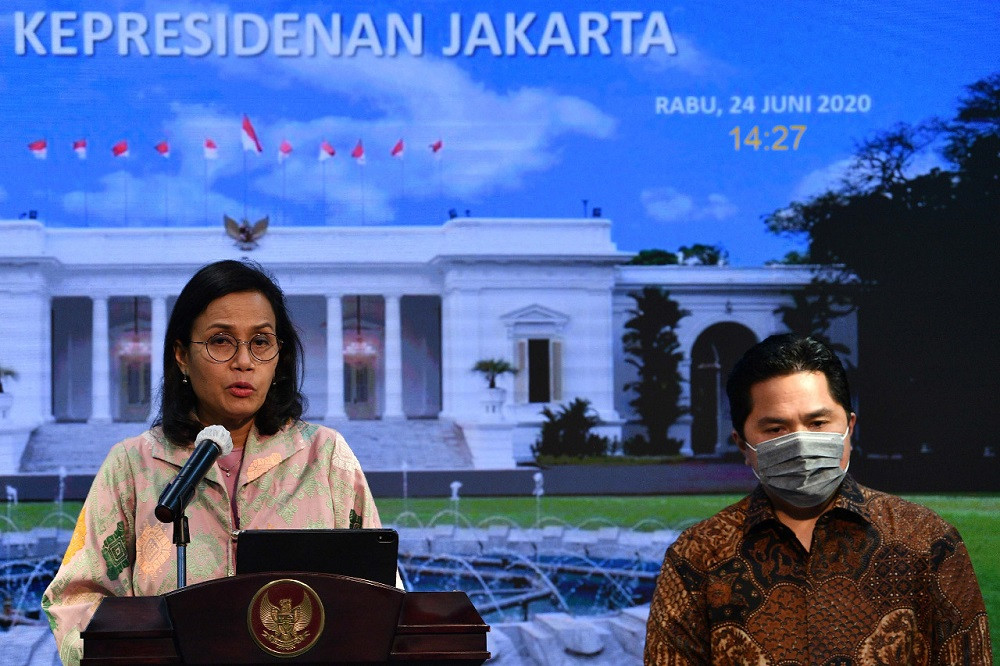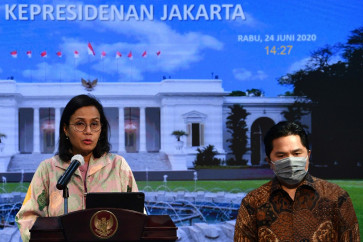Popular Reads
Top Results
Can't find what you're looking for?
View all search resultsPopular Reads
Top Results
Can't find what you're looking for?
View all search resultsAnalysis: Anticipating economic challenges after COVID-19
Indonesia, while not officially in recession yet, is predicted to record another contraction in the third quarter of 2020. In the preceding quarter the economy shrank 5.32 percent year-on-year (yoy).
Change text size
Gift Premium Articles
to Anyone
 Hard cash: Finance Minister Sri Mulyani Indrawati (left) and State-Owned Enterprises Minister Erick Thohir announce the government’s placement of Rp 30 trillion (US$2.12 billion) in state banks on June 24. The funds will be channeled as loans to businesses to boost the real sector. (Antara/Sigid Kurniawan)
Hard cash: Finance Minister Sri Mulyani Indrawati (left) and State-Owned Enterprises Minister Erick Thohir announce the government’s placement of Rp 30 trillion (US$2.12 billion) in state banks on June 24. The funds will be channeled as loans to businesses to boost the real sector. (Antara/Sigid Kurniawan)
T
he COVID-19 pandemic is turning into a global economic crisis as most countries have fallen into recession. The pandemic has severely hit global demand, which in consequence has disrupted the global value chain, lowering total trade and discouraging investments. It also increases risk and uncertainty in the global financial market.
Indonesia, while not officially in recession yet, is predicted to record another contraction in the third quarter of 2020. In the preceding quarter the economy shrank 5.32 percent year-on-year (yoy).
The pandemic creates a low inflation and interest rate environment in Indonesia. The inflation rate has been below the 2020 target of 3±1 percent with core inflation, a good proxy for domestic demand, continuing to weaken. In response to that, BI’s seven-day reverse repo rate has been cut by 100 basis points (bps).
As imports decelerated more than exports amid plummeting domestic demand, the country has posted a huge trade surplus, notably shrinking the current account deficit (CAD). Yet the country is suffering from capital flight triggered by uncertainties surrounding the pandemic.
To stimulate economic recovery, the Indonesian government has introduced a large stimulus package called the National Economic Recovery (NER) program, causing the budget deficit to widen.
The government as a result is accumulating higher external loans and increasing global bond issuance to finance the deficit.
Following the global lockdown easing, optimism about a global recovery has gradually risen. The positive progress made toward developing a COVID-19 vaccine has also aided the confidence.

















